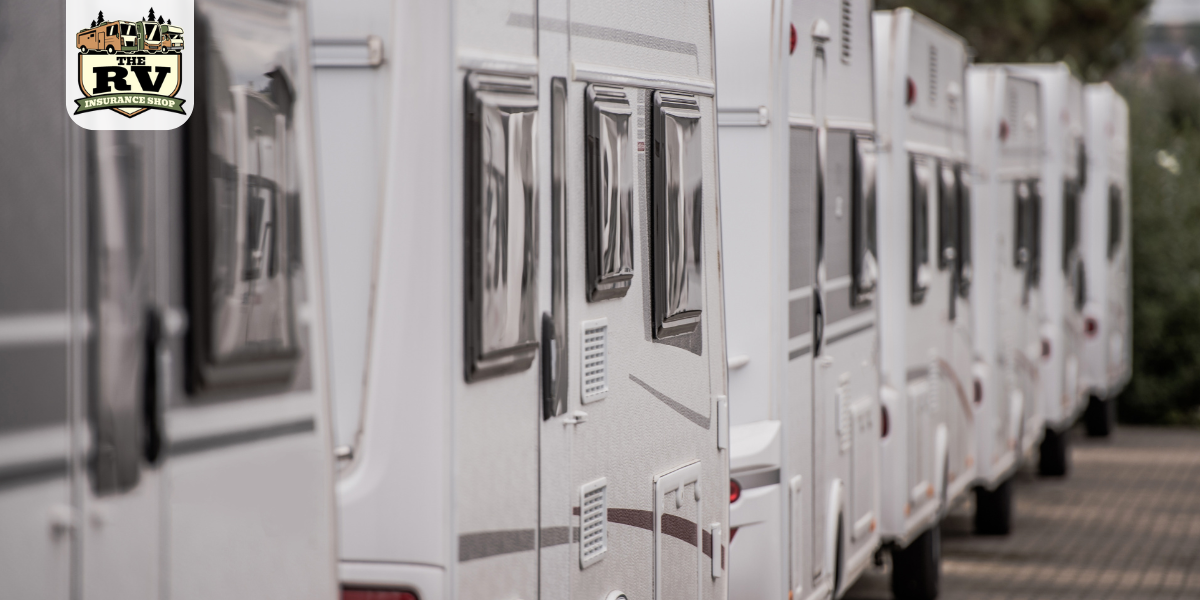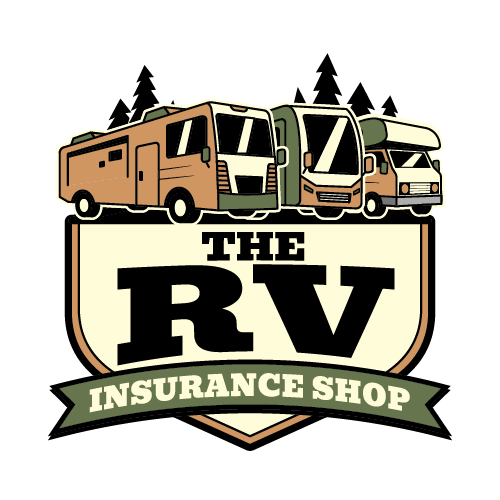How to Insure an RV in Storage: Protecting Your Investment Year-Round

When RV season comes to an end, many owners park their RVs for long periods, often thinking they are safe from damage or loss. However, your RV is still at risk even when it’s stored. Theft, vandalism, extreme weather, and even pests can wreak havoc on your vehicle if it isn’t properly protected. That’s why having the right insurance and taking proactive measures are crucial to safeguarding your investment while it’s in storage.
This guide will walk you through the basics of RV storage insurance and offer practical tips for keeping your RV secure during the off-season.
The Basics of RV Storage Insurance
Many RV owners mistakenly believe that once their vehicle is off the road, it no longer needs insurance. Unfortunately, this assumption can lead to costly consequences. Your RV remains vulnerable to a variety of risks, even when parked in a storage facility, driveway, or backyard.
Comprehensive RV insurance is key when your vehicle is in storage. Unlike liability coverage, which protects you from accidents while driving, comprehensive insurance covers non-driving-related damage such as theft, fire, vandalism, and weather events like hailstorms or floods. Without this type of coverage, you could be left paying out-of-pocket for repairs or, in worst-case scenarios, to replace your RV entirely.
For example, imagine a scenario where you’ve parked your RV at a storage facility for the winter. A sudden hailstorm hits, and golf-ball-sized hail damages the roof and windows. If you don’t have comprehensive coverage, the repair costs could easily run into the thousands.
What Does Comprehensive RV Storage Insurance Cover?
When your RV is in storage, comprehensive insurance can protect you from the following risks:
Theft: RVs, particularly those stored outdoors or in unsecured areas, can be prime targets for theft. Comprehensive insurance helps cover the cost of your RV if it’s stolen.
Weather Damage: Whether your RV is parked in your driveway or at a storage facility, it’s exposed to the elements. Severe weather conditions like hail, heavy rain, snow, and wind can cause significant damage, from cracked windshields to damaged roofs.
Fire: Fires can break out unexpectedly, whether from nearby buildings, a lightning strike, or faulty wiring in the storage facility. Fire coverage will help cover damages or even replace your RV if necessary.
Vandalism: Unfortunately, vandals can target vehicles, especially when they’re parked for long periods. If your RV is vandalized—whether it’s graffiti, broken windows, or slashed tires—comprehensive coverage can help cover the repair costs.
Pests: While you may not think of insects or rodents as a threat, they can cause serious damage by chewing through wiring, insulation, and upholstery. Some comprehensive policies cover pest-related damage.
Practical Tips for Safeguarding Your RV
While comprehensive insurance is essential for protecting your RV, there are several practical steps you can take to further reduce the risks while your vehicle is in storage. By being proactive, you can prevent problems before they arise and ensure that your RV stays in top condition.
1. Choose a Secure Storage Facility
Not all storage facilities are created equal. Look for facilities that offer gated access, surveillance cameras, and on-site staff. Some storage companies specialize in RV and boat storage and provide extra security features such as keypad entry, 24/7 monitoring, and covered or enclosed storage units. While these facilities might cost more, the added security is well worth it, especially if you plan to store your RV for an extended period.
Choosing a secure storage location can also help lower your insurance premiums. Many insurance companies offer discounts for RVs stored in high-security facilities, as the risk of theft or vandalism is significantly reduced.
2. Invest in a High-Quality RV Cover
If you’re storing your RV outdoors, using a high-quality RV cover is a must. RV covers help protect your vehicle from environmental elements like rain, snow, sun exposure, and debris. Prolonged exposure to sunlight can cause the paint to fade and the exterior to deteriorate, while rain and snow can lead to leaks, rust, and water damage. A durable cover will shield your RV from these issues, extending the life of both the exterior and interior.
When purchasing a cover, be sure to get one specifically designed for RVs. These covers are made from breathable material that prevents moisture buildup, which can lead to mold and mildew.
3. Perform Regular Maintenance Before Storing Your RV
Before placing your RV into storage, it’s crucial to perform regular maintenance to ensure it remains in good condition throughout the off-season. Start by cleaning the exterior and interior thoroughly to remove any dirt, debris, or food particles. This will help prevent rust, mold, and unwanted pests like rodents.
Speaking of pests, rodents are notorious for finding their way into stored RVs and can cause significant damage by chewing through wires, insulation, and soft materials. Consider using rodent deterrents, such as mothballs or peppermint oil, to keep critters at bay. You might also want to plug any small openings or holes to further prevent them from getting inside.
Additionally, check all seals, gaskets, and windows for cracks or leaks. Even a small gap can allow water to enter, potentially causing serious damage over time. If you find any damage, repair it before storing your RV to prevent further deterioration.
Lastly, remember to disconnect the battery or use a battery maintainer to prevent it from draining. Batteries tend to lose their charge when an RV sits idle for months, and a dead battery can cause problems when it’s time to take the RV out of storage.
4. Keep Your Insurance Policy Up to Date
Just because your RV is in storage doesn’t mean you should forget about your insurance policy. Review your coverage annually to ensure it still meets your needs, especially if you’ve made upgrades or modifications to your RV. As your RV ages or your storage habits change, you may want to adjust your coverage to reflect its current value.
If you’re storing your RV for an extended period, some insurance companies offer storage-only policies. These policies suspend liability and collision coverage since the RV isn’t on the road but maintain comprehensive coverage to protect against the non-driving risks mentioned above. This can be a cost-effective way to keep your RV insured during the off-season.
5. Monitor Your RV Regularly
If your RV is stored in a facility or off-site location, it’s important to check on it periodically. Visit the storage location every few weeks to ensure that everything is in order. Look for any signs of damage, leaks, or pest activity. Regularly monitoring your RV can help you catch problems early before they become expensive repair projects.
Additionally, some RV owners invest in security systems or GPS trackers that alert them to any suspicious activity or movement. This added layer of protection can give you peace of mind, knowing that your RV is being monitored even when you’re not there.
Conclusion: Safeguarding Your RV During Storage
Just because your RV is in storage doesn’t mean it’s immune to damage. Whether it’s weather-related, theft, vandalism, or even pest infestations, your RV faces risks when it’s off the road and parked for long periods. By investing in comprehensive insurance coverage and taking proactive steps—such as choosing a secure storage facility, using a high-quality cover, and performing regular maintenance—you can protect your RV from potential harm.
Don’t let your guard down when storing your RV. After all, it’s one of your biggest investments and a vehicle that brings you countless adventures. Ensuring it remains safe while in storage guarantees that it’s ready to go when the travel season starts up again.
By combining solid insurance protection with smart storage strategies, you’ll have peace of mind knowing your RV is well-protected during the off-season—and ready for your next big journey.

